- Home
- Tim Lebbon
Berserk
Berserk Read online
BERSERK
By
TIM LEBBON
Those who go for cold, queasy horror will embrace the latest shocker from Stoker-winner Lebbon (Fears Unnamed). When a dangerous military experiment on England's Salisbury Plain goes fatally awry, the authorities hastily and secretly bury the bodies of a dozen soldiers and a few other victims. The body of one soldier, Steven, is supposedly returned to his parents, but the coffin is empty. Ten years later, Steven's still grieving father, Tom, locates the place of burial. But when Tom excavates the site, he discovers not his son's remains, but the moldering corpse of a little girl animated by a peculiar form of life. Lots more nastiness follows. Fans who prefer their horror to have a sense of humanity should look elsewhere.
~ Publishers Weekly
BOOKS of the DEAD
This book is a work of fiction. All characters, events, dialog, and situations in this book are fictitious and any resemblance to real people or events is purely coincidental. All rights reserved. No part of this book may be used or reproduced in any manner without written permission except in the case of reprinted excerpts for the purpose of reviews.
Copyright 2006 by Tim Lebbon
For more information, contact: [email protected]
Visit us at: Booksofthedeadpress.com
BERSERK
Cover Art by Carl Graves
E-book Design by James Roy Daley
* * *
Table of Contents
Tim Lebbon - Berserk
About the Author
Preview: Tonia Brown - Badass Zombie Road Trip
Preview: Gary Brandner - The Howling
Preview: James Roy Daley - Terror Town
Preview: Matt Hults - Husk
Preview: James Roy Daley - Into Hell
Preview: Paul Kane - Pain Cages
‘Dead men tell no tales’
~Proverb
BERSERK
CHAPTER ONE
Ten years after Steven’s death, Tom never thought that his son would change his life again.
Tom held dear every precious memory of Steven, especially those times that affected him so much that he believed they had altered his perception of things forever. His toddler son, pointing to the sky in wonder and gasping his first word, Cloud! Older, learning to ride his bike, Tom letting go and Steven only falling off when he realised he was riding on his own. At thirteen he won a bronze swimming medal for the school in the national finals, and the photograph of his presentation showed a boy on the cusp of manhood, his expression delighted yet reserved, full of self-awareness. At seventeen Steven joined the Army, and at nineteen he was accepted into the Parachute Regiment. Tom still had the photograph of his son wearing that red beret hanging above his fireplace at home. It made him proud. It made him sad. It was the last picture he took of Steven before he died.
Tom sat staring into a half-empty glass, listening to the bustle of the pub serving after-work pints and meals, wondering whether he should go home to Jo or stay for one more drink, and Steven suddenly popped into his mind. This often happened – he had been their only child, and his loss had stabbed them with a blade that time kept twisting – but mostly it was when Tom least expected it. He blinked tears into a blur, drained his drink and tried to imagine what Steven would be like now, were he still alive. After ten years in the Parachute Regiment he would have likely seen action, either in Eastern Europe or the Gulf. He would probably be married; he had always been one for the girls, even as a youngster.
Maybe Tom would be a grandparent.
“Hello, wherever you are,” he muttered as he stood and walked to the bar. He often pictured the ghosts of those not yet born, shades of lives unlived, and sometimes he craved to be haunted by his own grandchildren. He hoped they would be proud, but he thought not.
“Same again, Tom?”
Tom had placed the glass on the bar with every intention of going home, but now he nodded and handed over a fistful of change. Glass replenished, he returned to his table, but two men had taken his place. He considered asking whether he could join them, but the thought of entering into conversation with strangers did not appeal to him right now. Not when Steven was so fresh in his mind.
It’s almost ten years. He sat in the window seat close to his original table and sipped from his pint. Ten years since he died. Jo has changed so much in that time. Gone from a lovely young mother into middle age barren of all but her hollow hobbies. And I still love her. He drank again, closed his eyes, tears threatening. She loved him too. It was strong, their bond, and passionate, perhaps the single positive outcome of Steven’s death.
He wondered just how much he had changed.
The two men were talking quietly, yet Tom could not help overhearing some of their conversation. He had never been the sort who could shut out background noise, and even if he had no real interest in what was being said, the words still found their way in.
The men were talking about their time in the Army. They looked around thirty. Steven’s age, were he still alive.
Tom drank some more ale, already beginning to regret this third pint. Jo knew he stopped off for a beer on the way home every Friday. What she did not know was that he was invariably on his own. He had led her to believe that a few colleagues from the office went along, and that small white lie did not bother him greatly. There was no reason to make her think otherwise. She would only worry. And for Tom it was just a couple of quiet pints, during which time he could muse upon the week gone by and contemplate the weekend ahead. He sometimes chatted to the couple who owned the pub, and occasionally he entered into conversation with one or two of the regulars. But more often than not this was his own time. It was when he could really think about whether or not he liked himself. The answers usually came in thick and fast, and that was why he was often home after just a couple of drinks, to immerse himself in life with his wife once again. Smother his thoughts. Bury the aching feeling that he should have done much, much more with a life so scarred by Steven’s death.
“. . . never knew what it was all about,” one of the men said. The other nodded meaningfully and drank from his pint. He caught Tom’s eye momentarily, then glanced away.
“Well if he didn’t know what they did there, he deserved it.”
Tom turned to the side in an effort to hear more of the conversation, but somebody hit a jackpot on the fruit machine. The celebratory clunking of their ejected winnings drowned the bar for thirty seconds, and by then the two men were sitting in silence once again.
Tom looked around the pub and felt a familiar disquiet settling in. He spent only a couple of hours here each week, and yet sometimes it seemed more familiar than his own living room. Perhaps this was the only place he ever truly relaxed. He closed his eyes and sighed, and when he opened them somebody said, “Porton Down.”
He looked at the two men. They were hunkered down over their drinks, leaning in close, but they were not catching each other’s eyes. One was staring into his pint glass, the other had found a fascinating snag of lint on his jacket sleeve.
Porton Down! That’s on Salisbury Plain where . . . Where Steven was killed. ‘Training accident’, they had told Tom. When pressed, they gave a few more details, and he had always wished that he had not asked. And yet . . . there was that ever-present doubt. ‘Cover-up’, Tom’s own father had muttered at the funeral, but he was long lost to Alzheimer’s by then, and Tom did not pursue the matter.
There came one of those rare moments of silence that haunt bars and wait to manifest, a brief second or two when conversations falter at the same time, the fruit machine falls silent between turns, the bar-staff pause for a drink or go to change a barrel, and the juke box takes a breather between tracks. And into that silence – still so quiet that probably only Tom could hear it – one of
the men whispered, “They kept monsters.”
* * *
Later, Tom would spend some time musing on destiny, and what cruel fate had deigned that he hear those three whispered words. If he had gone home after his second pint he would have never heard, and life would have gone on, and perhaps he and Jo would have grown old together, their love doing its best to fill the void where Steven and his family could have been.
But by the time he thought that, he already knew the monsters of which the man had spoken. And in the face of their ferocity, regret had no place at all.
* * *
“Excuse me!”
Tom had watched the men finish their drinks and leave the pub, glancing around as if their final comment hung in the air for all to hear. And it was the look in their eyes – scared, defensive – that made him put down his unfinished drink and follow them out.
“Excuse me!”
They were walking quickly, and he had to jog to catch up.
“Excuse me, gents. Hey!”
They paused and turned around. Neither of them looked very welcoming. This close, Tom realised how big they both were. He guessed that they were no longer in the Army; one had long hair, the other sported a beer gut that testified to apathy and lack of exercise.
Tom came to a halt, panting, and wondered what the hell he was going to ask.
“Help you?” Long-Hair asked.
“Yes,” Tom said, looking from one to the other. Beer-Gut seemed merely dismissive, as opposed to aggressive, so he concentrated on him. “I couldn’t help overhearing some of what you were saying in there—”
“Ear-wigging, were you?” Long-Hair asked.
“No,” Tom said. “But I heard you mention Porton Down. My son was killed on Salisbury Plain ten years ago, and I was just wondering . . .” Tom thought. I won’t mention their ‘monster’ comment, That’s what drove them out, the thought someone might have heard that word. Monster.
“Sorry to hear that,” Beer-Gut said, though he sounded indifferent.
“I was just wondering, if you were at Porton Down, maybe—”
“We weren’t there,” Long-Hair said. “You must have misheard us.”
“How long ago did you say was he killed?” Beer-Gut asked.
“Leave it!” his friend cut in, but Tom was quick with his answer.
“Ten years next month.”
Beer-Gut’s eyes widened slightly, he took his hands from his pockets, stood taller.
Long-Hair looked from his friend to Tom, back again. “I said leave it!” He grabbed his jacket and shoved him against the wall, not hard, but there was certainly nothing friendly in the gesture. His breath stank of fear. Tom had never smelled anything like it before, but he knew exactly what it was. This man was terrified. “We just came for a drink,” he said. “We don’t like people listening in on our conversation, and we don’t want to be bothered by stuff we know nothing about.”
“So you weren’t there?” Tom asked, keeping his eye on Beer-Gut. The big man frowned and refused to meet his gaze.
“Where?” Long-Hair said. “And even if we were, didn’t your son tell you anything about the Official Secrets Act? Now fuck off before I get angry.” He let go of Tom and retreated, wringing his hands as if embarrassed at his show of aggression.
“If that wasn’t you angry, I’d hate to piss you off,” Tom said. But Long-Hair did not avert his gaze or apologise. He simply stared, and soon Tom was unnerved enough to back down. “Okay, I must have misheard,” he said. “Sorry. I thought I heard you talking about monsters.”
Beer-Gut turned and started walking away. Long-Hair smiled, shook his head. “Too much ale, old man,” he said. Then he too turned away, and the two men left Tom standing outside the pub. Neither of them looked back.
Too much ale, old man. And for every minute of his walk home, Tom wondered how true that statement could be.
* * *
“It’s almost ten years, now,” Jo said the following Monday morning at breakfast.
Tom nodded. He had just finished his cereal, and his thoughts kept returning to the two men outside the pub. One of them aggressive, one of them quiet, but both uncomfortably aware of what he had been asking them. He had not been hearing things, and he had not imagined their comments in the pub. The palpable fear in their reaction made a mockery of their denial.
“You think we should mark the occasion somehow?” she asked.
“How?”
She shrugged, twirling a strand of hair. She had always done this when thinking deeply, and Tom loved it. It gave him a glimpse of the vivacious woman he had known before their lives had been blown apart. “Maybe we could visit the Plain again.”
They had gone to Salisbury Plain once since Steven’s death, on its first anniversary. It was still a military firing range back then, and they had not been able to get anywhere near to where the accident had happened. They had to imagine from a distance; the RAF Tornado swooping in across the hills, unleashing the air-to-surface missile, its pilot pulling up when he realised his mistake. He thought he was firing at a target vehicle, they had been told, not an actual troop carrier. Steven was one of fifteen men killed. They had been returned to their families in sealed coffins with Union Jacks splayed across the lids, a yearly ‘pension’ payment to the next-of-kin, and no real answers. Accident, they were told. It was an accident.
“We could,” Tom said, “if you really want to.”
Jo shrugged. “I’m not sure what I want.”
“I’d like to go,” Tom said, nodding. The men’s talk in the pub had re-ignited a deep-felt scepticism about what he and Jo had been told about their son’s death. Much as Tom realised how ridiculous it was to link the two – the men’s strange conversation could have nothing to do with Steven, not after so long – there was always that doubt in his mind to play on. Any small mention of military accidents, mistaken identity, friendly fire, always set his mind running again, turning over the few facts they had been given and creating whole new truths to fill in the gaping blanks.
The inquest had been long. The media had covered it extensively, and following the ‘misadventure’ verdict newspapers had run interviews with relatives and pressure groups. There had been several TV programmes about the incident, and two investigative journalists had spent a year trying to discover the ‘real truth’. They had come away smug and victorious with what they had found: a few obscure facts about live weapons training policy, and a closet full of skeletons connected to the inquest’s presiding officer’s sexual preferences. But nothing concrete. After a year in which the fact of Steven’s death had been hammered home to them each and every day, Tom and Jo knew little more than they had the day he died.
Tom had no faith in the inquest’s findings, and even less in the papers and TV programmes that used it to promote their own sales and ratings. He had no doubt whatsoever that the story they were told was nowhere near the truth, but the glare in which the enquiry took place had swayed many people into believing that the real story was being fully uncovered. What was actually revealed at the end of that long, painful year was yet another skewed version of the same account. More names to blame, rules to change, heads to roll, many apologies made to hungry TV cameras and a public so used to being deceived that they no longer recognised the self-satisfied smiles of their deceivers.
Cover-up, Tom’s father had whispered at the funeral.
Tom had always been angry, but the anger was tempered by a grief so all-consuming that he had barely known himself. For that year he was a stranger living in his own body, existing purely to suffer the memories of his only son. He recalled many occasions that he had not thought about for years, random moments in time, as if his mind were searching for remnants of Steven. Everywhere he looked he saw his son riding a tricycle, kicking a football, leaving home at seventeen to join the Army. There came a point when Tom wished he could go even a day without memories, but those were the times when loss hit him hardest. His anger, though rich and deep, was also us
eless. It would gain him nothing. And he knew that through it all, the most important thing was that he and Jo were there for each other.
He had never forgotten, nor forgiven, but in a way he supposed he had given in. And eventually life moved on.
They kept monsters.
“Yes,” he said again, “I’d like to go. I think it would do us some good.” Jo lowered her head and looked down into her mug. “Jo? You all right?”
She nodded, looked up at him with sad eyes. She rarely cried anymore. Somehow this look of wretchedness was worse. “I’m fine,” she said. “It’s only an anniversary. Not really a day different to any other.”
“No, no different.”
“I think about him every day anyway. It’s just . . .” She trailed off, shook her head.
“We should mark the day,” Tom said.
“Yes.” Jo looked at him and smiled. “It’s like a birthday, except this is Steven’s deathday. Is that sick, Tom? Will people think we’re weird?”
Tom grasped her hand across the table and felt the stickiness of butter and jam between her fingers. “You think I give a flying fuck what people think?” he asked.
Jo laughed. He liked that sound. It reminded him that they still had a life together, and sometimes he reminding.needed
“I’m going to work,” he said. “I’ll check out the Internet at lunchtime and see if I can find us a nice cottage somewhere nearby.”
“I think just a weekend,” Jo said. “Any longer may not be very nice.”
“Just a weekend,” Tom agreed. He stood and kissed his wife, hugged her, tickled her ear and stepped back as she aimed a slap at his arm. “See you later. Love you.”

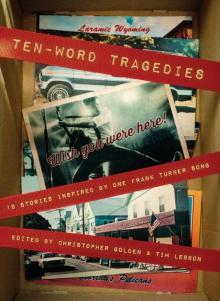 Ten-Word Tragedies
Ten-Word Tragedies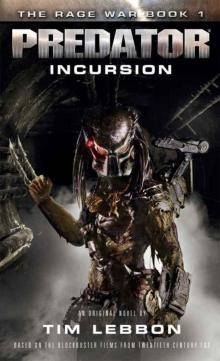 Predator: Incursion
Predator: Incursion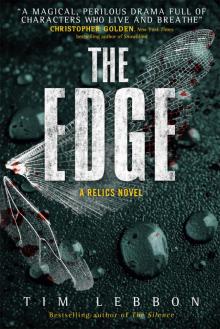 Relics--The Edge
Relics--The Edge Firefly
Firefly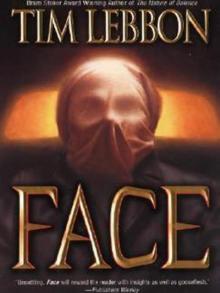 Face
Face Generations
Generations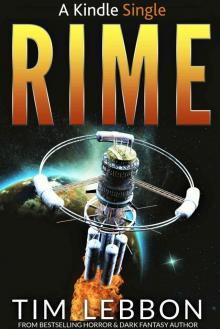 RIME (Kindle Single)
RIME (Kindle Single) Fallen
Fallen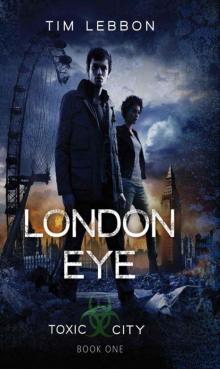 London Eye tc-1
London Eye tc-1 Kong: Skull Island
Kong: Skull Island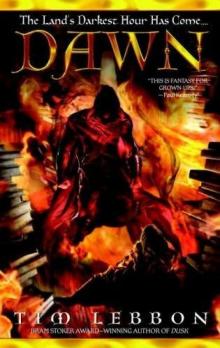 Dawn n-2
Dawn n-2 Into the Void: Star Wars (Dawn of the Jedi)
Into the Void: Star Wars (Dawn of the Jedi)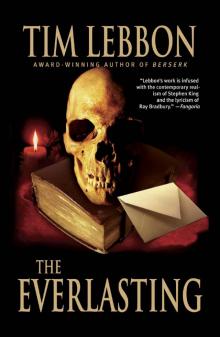 The Everlasting
The Everlasting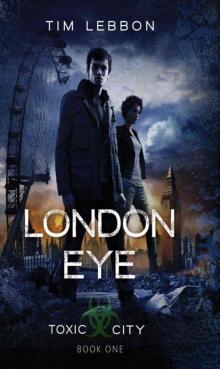 London Eye: 1 (Toxic City)
London Eye: 1 (Toxic City)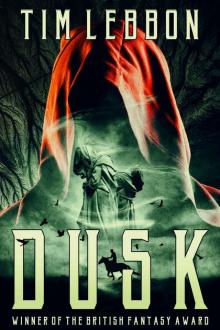 Dusk: a dark fantasy novel (A Noreela novel)
Dusk: a dark fantasy novel (A Noreela novel)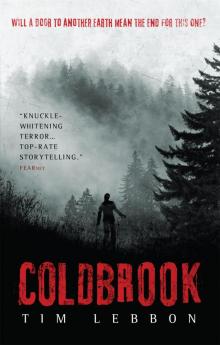 Coldbrook
Coldbrook Alien
Alien Dusk
Dusk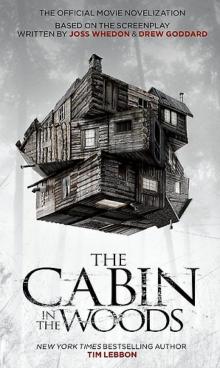 The Cabin in the Woods
The Cabin in the Woods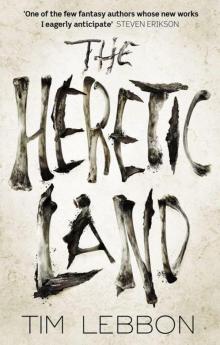 The Heretic Land
The Heretic Land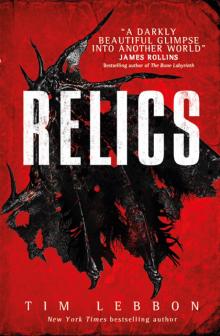 Relics
Relics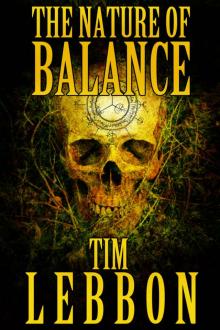 The Nature of Balance
The Nature of Balance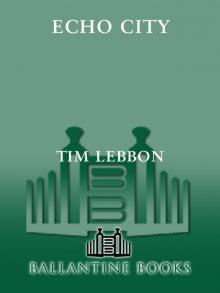 Echo City
Echo City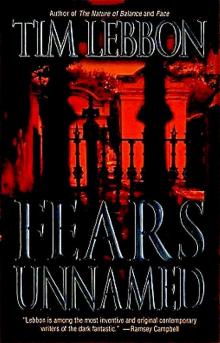 Tim Lebbon - Fears Unnamed
Tim Lebbon - Fears Unnamed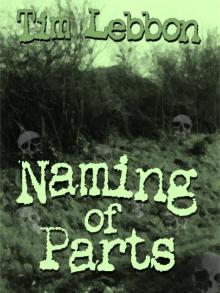 Naming of Parts
Naming of Parts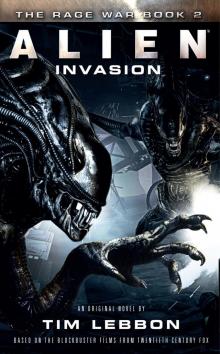 Alien--Invasion
Alien--Invasion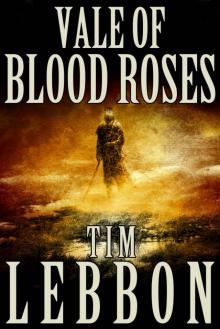 Vale of Blood Roses
Vale of Blood Roses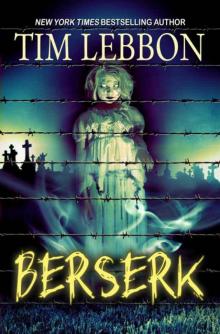 Berserk
Berserk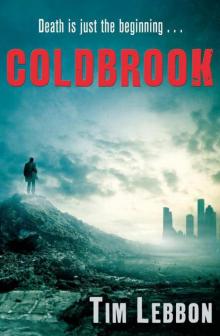 Coldbrook (Hammer)
Coldbrook (Hammer)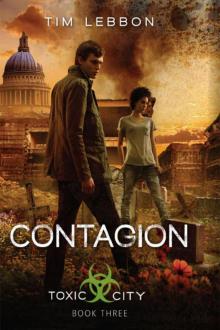 Contagion tc-3
Contagion tc-3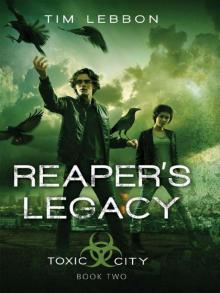 Reaper's Legacy: Book Two (Toxic City)
Reaper's Legacy: Book Two (Toxic City)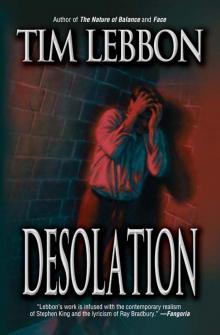 Desolation
Desolation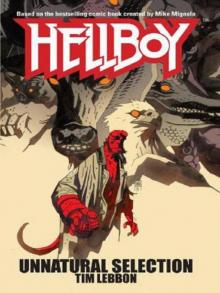 Unnatural Selection
Unnatural Selection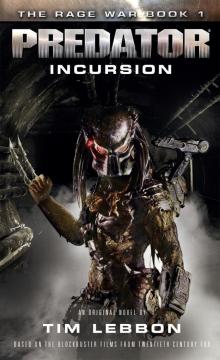 Predator - Incursion
Predator - Incursion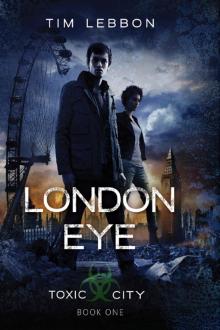 London Eye
London Eye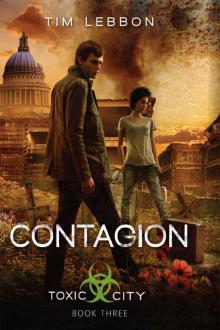 Contagion (Toxic City Book Three)
Contagion (Toxic City Book Three) The Silence
The Silence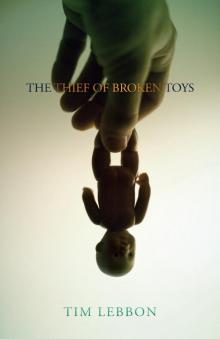 The Thief of Broken Toys
The Thief of Broken Toys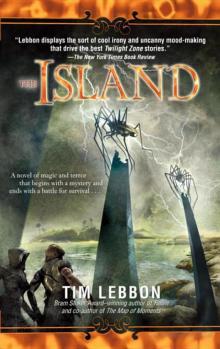 Tales of Noreela 04: The Island
Tales of Noreela 04: The Island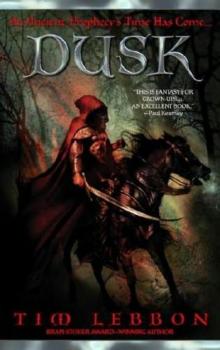 Dusk n-1
Dusk n-1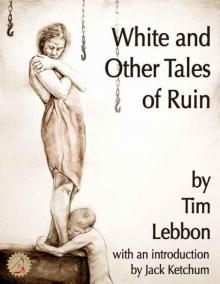 White and Other Tales of Ruin
White and Other Tales of Ruin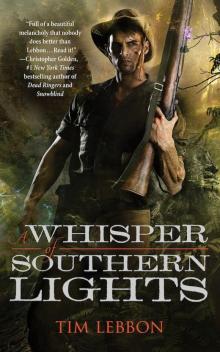 A Whisper of Southern Lights
A Whisper of Southern Lights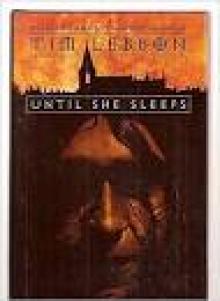 Until She Sleeps
Until She Sleeps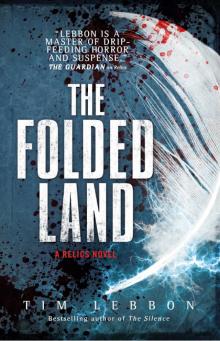 Relics--The Folded Land
Relics--The Folded Land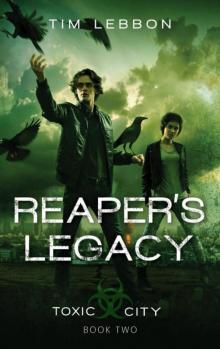 Reaper's Legacy tc-2
Reaper's Legacy tc-2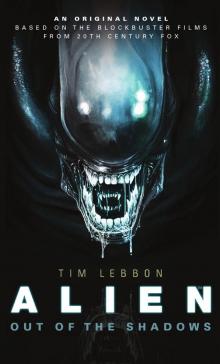 Alien: Out of the Shadows
Alien: Out of the Shadows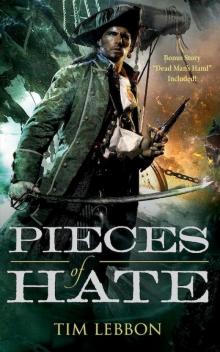 Pieces of Hate
Pieces of Hate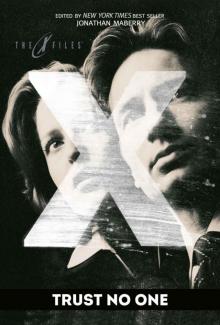 X-Files: Trust No One
X-Files: Trust No One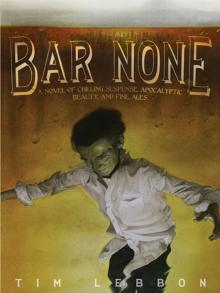 Bar None
Bar None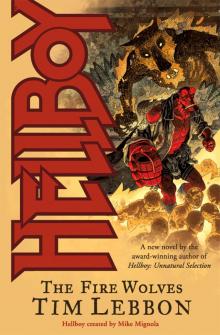 The Fire Wolves
The Fire Wolves